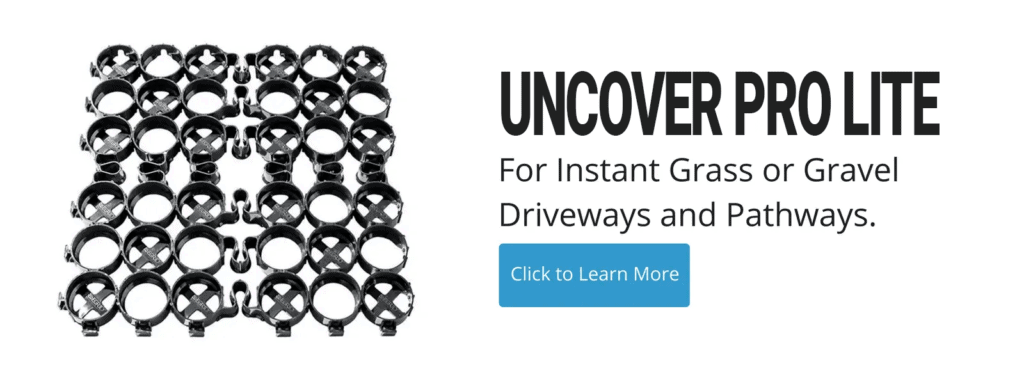
For the longest time, homeowners have had few options when it comes to driveways. You’ve got your typical asphalt driveway, concrete driveways, dirt driveways, and basic gravel driveways. These driveways all have their advantages and disadvantages; homeowners have typically had to pick one and live with the results.
There are new options popping up on the market now, however. Gravel driveways, in particular, have seen massive improvements in the technology used to implement them and hold them in place.
In case you’re looking for an alternative to the average concrete driveway, let’s take a look at how modern gravel driveways stack up against concrete, and which one you should choose for your home.
Concrete Driveways are Solid, Yet Flawed
People enjoy concrete driveways when they are first installed because of the smooth surface they provide while driving on them. As they age, however, functional and aesthetic issues may arise. Over time your driveway will likely develop cracks, as it settles the way many home foundations do. Stains show up. And in wet areas, concrete contributes to localized flooding and water around your foundation, in your yard or in your home.
If your concrete driveway was to settle or break apart due to movement beneath the ground over time, you would likely develop low spots. These low spots not only ruin the smooth drive that concrete provides, but they can also wreak havoc on your lawn and home if you have a significant amount of rain.
Concrete driveways provide no outlet for rainwater, which means it’s either going to pool up in your driveway or drain off to the sides where it could end up pooling around your home or flood-prone areas in your home.
In addition to this, oil spills and other motor vehicle liquids do not wash off of concrete driveways easily. You’ll usually need a special concrete cleaning product to get them out unless you want to live with noticeable stains all over your concrete driveway.
Another downside to installing a concrete driveway is that you’ll have to have it done by professionals unless you happen to have all the right concrete pouring equipment laying around. They have almost zero DIY value compared to other options associated with gravel.
“Concrete driveways are more prone to gradual damage from the elements. Aside from that, depending on how it was built, with improper compacted subgrade or bad placement it won’t last long and you need to frequently patch or fill it.”~ Chuck Waltman, Houston Home Remodeler
Gravel Driveways with Plastic Permeable Pavers Are a Major Upgrade

Regular gravel driveways are not without their flaws either. The gravel is usually loose and displaced easily, leading to bare spots and ruts in your driveway. But, with a paver system like the ones offered by TRUEGRID, these issues can be all but eliminated.
TRUEGRID pavers are permeable, durable, paver grids that you can easily install yourself. They are perfect for holding gravel in place and are designed to handle heavy traffic over long periods of time. No mud, no ruts, no gravel spreading or loss. No maintenance. No cracks or water ponding as they provide added drainage. They don’t require any special equipment to install, and you can even use the installation of them as an opportunity to get some quality time with your family on a DIY project.
Another selling point for these pavers in the concrete vs. gravel driveway debate is that spills and stains just don’t pose any problems for them. Any spills from auto liquids or other types of liquid will drain directly through the gravel and into the soil where they are naturally filtered via bio-remediation.
When it comes to environmental-friendliness, gravel driveways with permeable pavers are hard to beat. Not only do they provide a safe avenue for a harmful liquid to drain away once spilled, but they’re also made from hi-density recycled polymer, meaning they are sourced via a method that actually has a positive impact on the environment, rather than a negative impact.
Choosing Between a Gravel or Concrete Driveway is Not Difficult Once You Know the Facts

The fact of the matter is that there are upsides to both gravel driveway with pavers and basic concrete driveways. There are, however, more advantages (and less negative aspects) to having a gravel driveway with pavers installed.
Not only will they last much longer than a concrete driveway when properly maintained, but they come with a whole host of other benefits for you, your family, and the environment. Auto spills happen to almost everybody, but in a gravel driveway with pavers, they simply disappear into the soil where they can be safely filtered away by Mother Nature.
Gravel driveways with grid paver support won’t develop bare spots, cracks, potholes, or other unsightly blemishes. They add drainage and flood protection. They are cooler in the summer heat and de-ice faster in the winter. They are also made from environmentally friendly material and can help prevent your home from being damaged due to flooding in your driveway.
In addition, they can also provide you an opportunity to complete a simple and easy DIY project with your family. The benefits of having your children help build a part of your home are immeasurable, and it will give them a small sense of pride.
All in all, choosing a gravel vs. concrete driveway shouldn’t be too hard of a choice once you know the facts. If you value the environment, your family, and the health of your home, it should be obvious to you what the better option is.
It’s important to have a base layer (base course) below the gravel filled permeable paver. Bases can vary from region to region. A good, solid base is often a 3/4″ minus road base material. Typically, these bases are commonly found in many areas used under asphalt or concrete pavements. For additional drainage and improved stormwater management, you may want to consider a chipped/fractured drain rock as a base. Stones that are angular, hard, uniform size, and clean provide great drainage under permeable pavers. Typically, these stone sizes are 3/4″, 1″, or even 1.25″ for residential driveways. Commercial driveways typically require 1″, 1.25″, or 1.5″ stones, a compacted road base, or an engineered base by a professional.
5 Types of The Best Surface Gravel for Driveaway
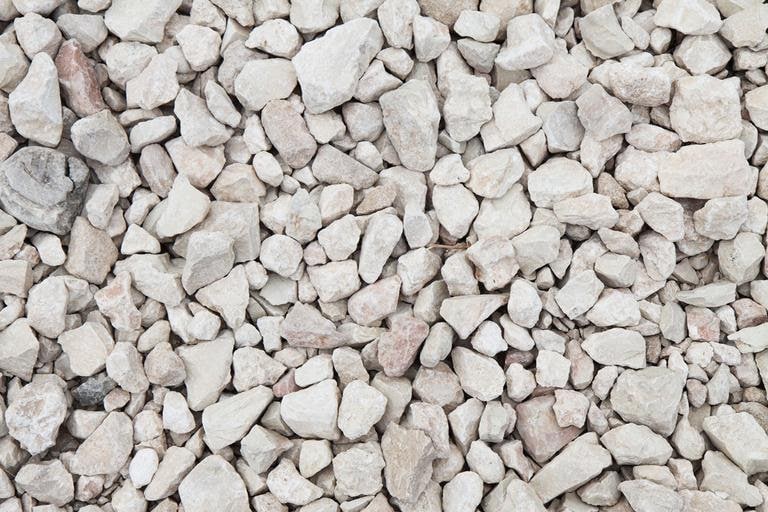
There are even more options when it comes to finding the best gravel for driveway surfaces. Among the other options are fractured/angular stones in many colors depending on the area. Often these stones are 1/2″, 5/8″, and sometimes 3/4″, uniform size, hard, angular stones. These are the best options for driveway surfaces gravel inside permeable pavers because they drain well and are self leveling.
1. Crushed Stone #411
It is crushed up #57 stone combined with rock dust. This mixture is able to handle moderate traffic from heavy vehicles.
2. Quarry Process
It is also called “crusher run” or “crusher fines” and works well for the surface of both driveways and walkways. It’s made from stone dust fines and crushed stone.
Pease note, these types of fills inside a
3. Pea Gravel Caution
Pea gravel is popular gravel for the looks. However, it’s composition of round, small stones will easily migrate and spread under the weight of vehicles. It is not the best solution for the infill of a permeable grid paver as the size is typically too small and the rounded stones have less friction to remain in place.
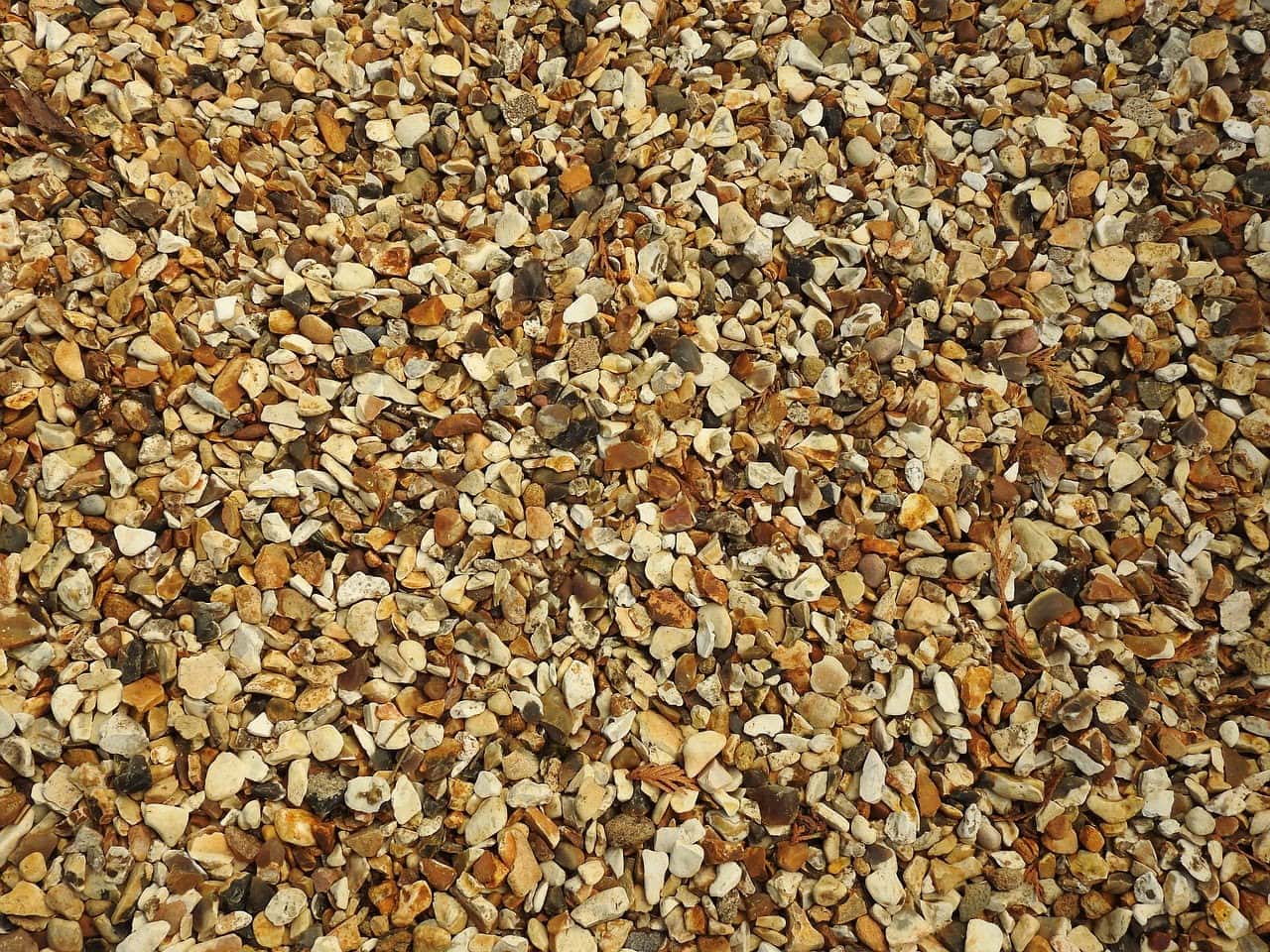
A Better Alternative to Typical Gravel Driveways
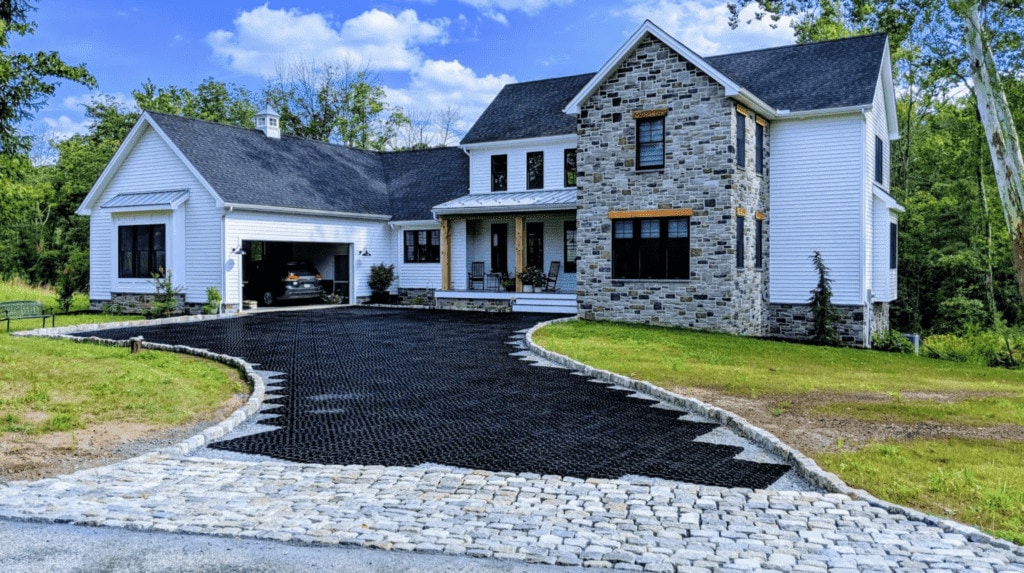
Some of the aforementioned gravel types require stabilization, but the best way to construct any gravel driveway is by using TRUEGRID permeable pavers to lock in your gravel.
TRUEGRID PRO LITE and PRO PLUS stabilizing pavers simply require fill gravel and surface gravel, although you can use the same type of gravel for both. The fill gravel is poured over the top of a piece of fabric at the bottom of the excavated area where you want your driveway that provides drainage for water and other liquids.
It is then compacted and leveled before TRUEGRID permeable pavers are snapped in place over the surface. Next, your surface gravel of choice is poured over the pavers and leveled. This weighs the pavers down and locks them securely into place.
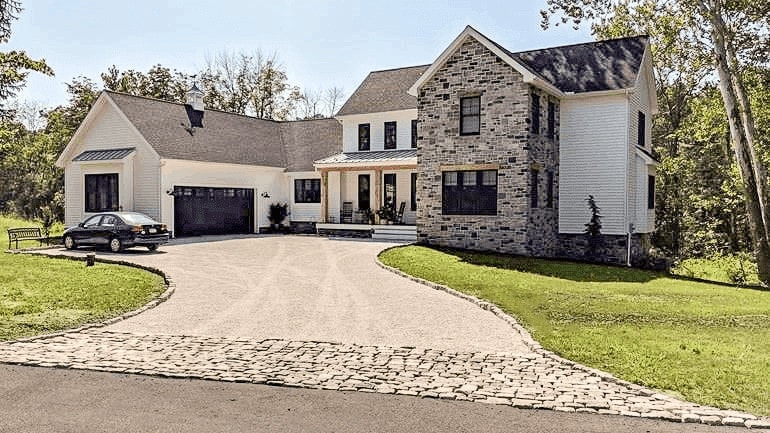
The main benefit of using TRUEGRID pavers to build a gravel driveway is that they will keep your gravel in place, eliminating the need for almost any maintenance during the course of your driveway’s lifetime. TRUEGRID also has the benefit of added drainage.
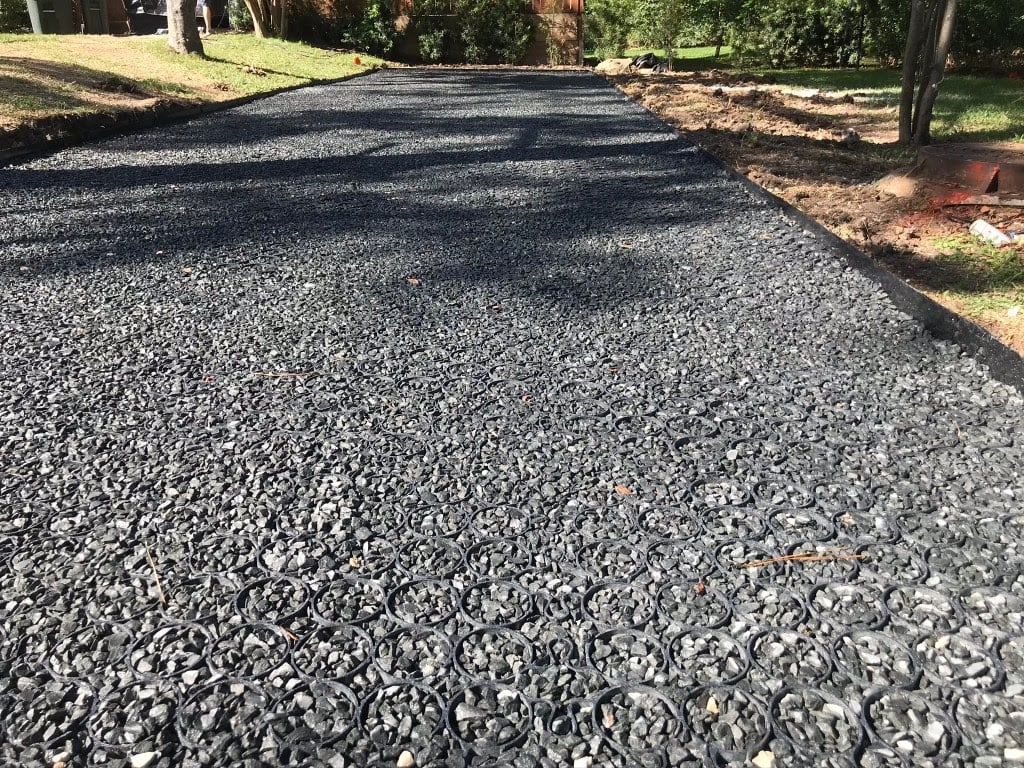
A properly installed and maintained TRUEGRID gravel driveway is durable enough to handle all types of vehicle traffic and will last more than 25 years without cracking or breaking down in the sun, rain, or other types of weather like asphalt does.. Choosing the best gravel for driveway usage is only part of the equation.
If you want to build your gravel driveway the maintenance-free way, get in touch with the pavement professionals at TRUEGRID today for a quote.
